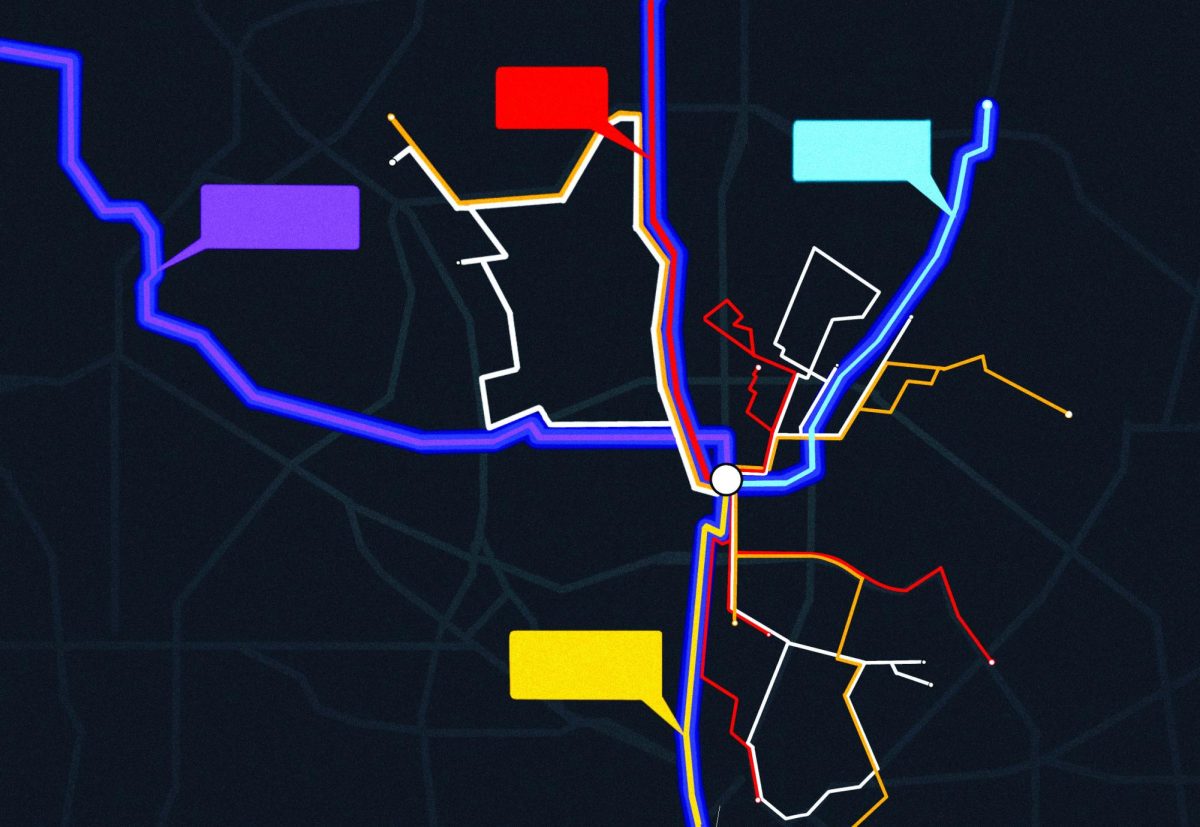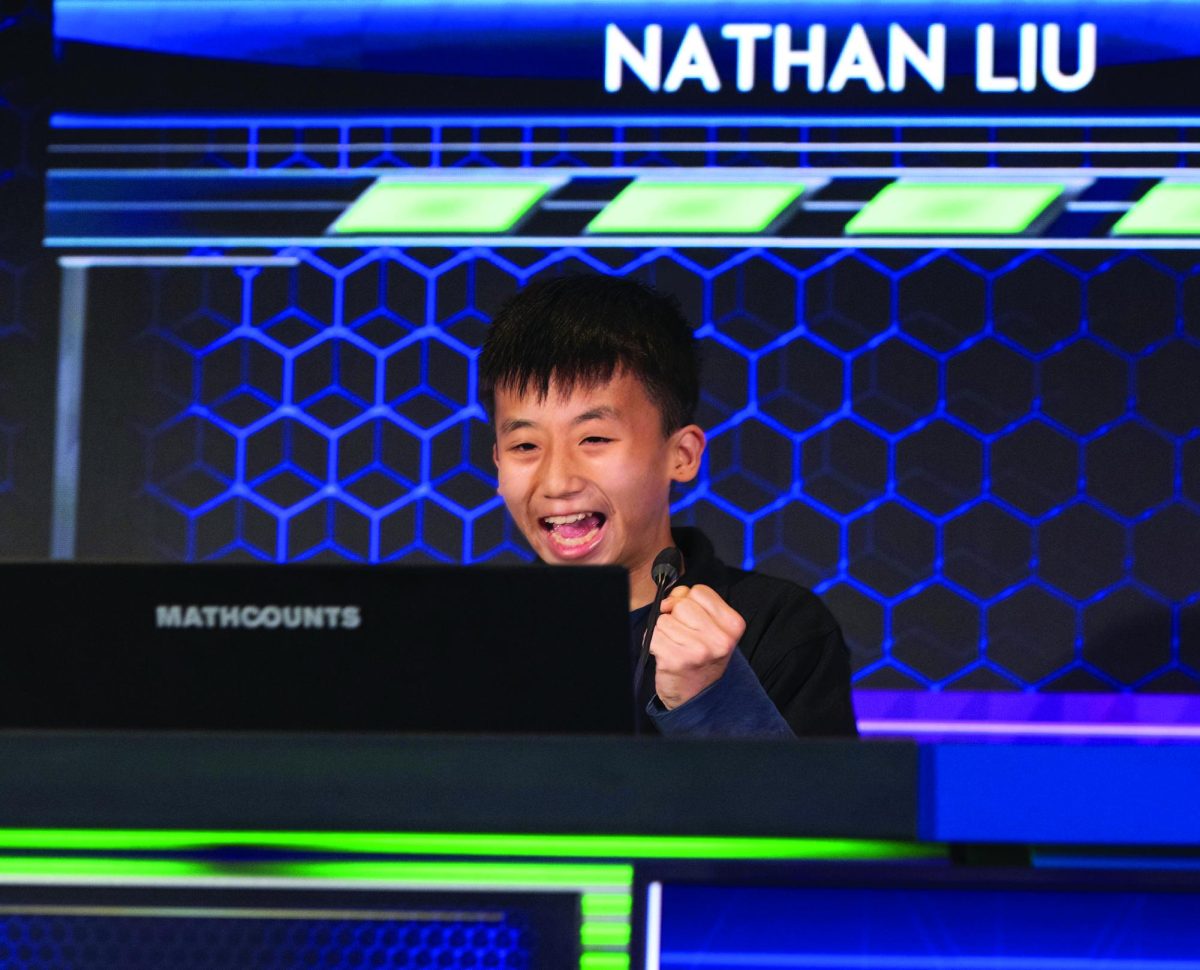In the 1960s, educators gathered to discuss a major development in academics. While some teachers believed that this development would greatly improve students’ ability to perform complex tasks, others feared that students would rely on the new tool as a crutch to do basic operations.
That tool was the handheld calculator.
Now, 60 years later, a new invention is reshaping the learning landscape: generative AI.
And while the calculator changed math classes forever, tools like Chat-GPT have the potential to change the entire education system.
That’s why, earlier this year, the English department decided to find a new solution—Digiexam, a brand new educational software designed to cut down on cheating and the use of AI.
“Essentially, Digiexam is a lockdown browser similar to ones used on the SAT and ACT,” English Department Chair Michael Morris said. “Part of the motivation to introduce it came from anticipating the move to all digital AP English and History exams.”
English instructor Lynne Schwartz was a student herself when calculators became commonplace in the classroom.
“When I was in college, my dad worked for Texas Instruments and he got me one of the huge handheld calculators—the first of its kind,” Schwartz said. “And I just thought it was magic. I was just so happy to have it. I mean, all it did was multiply, divide, add and subtract, but it was fantastic.”
Schwartz sees many similarities between the rise of calculator technology and the rise of AI. In particular, many educators worry that AI, like calculators, will serve as a crutch for basic mental tasks that are essential for students. Since she graduated college, she has seen those fears come true in many cases.
“I remember people getting upset that kids wouldn’t learn to add in their heads,” Schwartz said. “And indeed, I’ve gone to stores before, like Subway, and the electronic cash register is broken down, and the kid running the cash register doesn’t know how to give change. I think that the mental activity that it takes to calculate something in your head is a useful exercise for the human brain, just as I think that the mental activity of organizing information in your head to write it in an essay is a good exercise for your brain.”
Schwartz believes that AI is capable of benefiting both students and teachers when used in academically honest ways.
“I’ve heard other teachers talk about student comments and using AI to create comments on student work,” Schwartz said, “which I thought was a very interesting idea. It’s not cheating, it’s just a helpful tool that you could use to generate comments about student essays without writing all over the paper.”
While it is a completely brand-new feature, Morris believes that Digiexam works well with the traditional tools of the department.
“Teachers can enable spell check and extra time, and the software has all the normal features of Word, such as italics and font sizes,” Morris said.
Morris believes that the introduction of Digiexam will likely reinforce many existing trends in the English department.
“With the introduction of Digiexam, based on the premise of giving students feedback on their own writing, English teachers will be having more and more in-class writing assignments,” Morris said. “This change is not new: we have been moving in that direction for a few years now.”
Though Digiexam will likely have an impact on in-class writing, the overall policy regarding out-of-class assignments will likely continue.
“While our existing technology of TurnItIn primarily upholds the standard of submitting original work, it is not very good at detecting AI,” Morris said. “I don’t anticipate an immediate change with AI-detection software outside the classroom.”
Despite the issues of mitigating the unsanctioned use of AI outside the classroom, Morris, along with other English teachers, has devised a few ways to overcome the technology’s challenges.
“We try to do a lot of the drafting for longer papers in class,” Morris said. “That way, students’ work will have components that teachers can look at in class with them.”
Though he understands the risks of AI usage by students, Morris believes that AI can have a positive impact in the English classroom.
“For instance, some teachers have embraced AI by giving it a prompt and evaluating the essay it produced,” Morris said. “That allows students to discuss the strengths and weaknesses of the composition and possibly make revisions themselves.”
As the school community adapts to the new software, Morris and other English teachers are actively considering the long-term implications of Digiexam.
“In the end, I see the change as a gradual evolution,” Morris said. “Teachers have become comfortable with the handwriting and typing two-step process for in-class writing, and the introduction of Digiexam merely expedites that process.”








